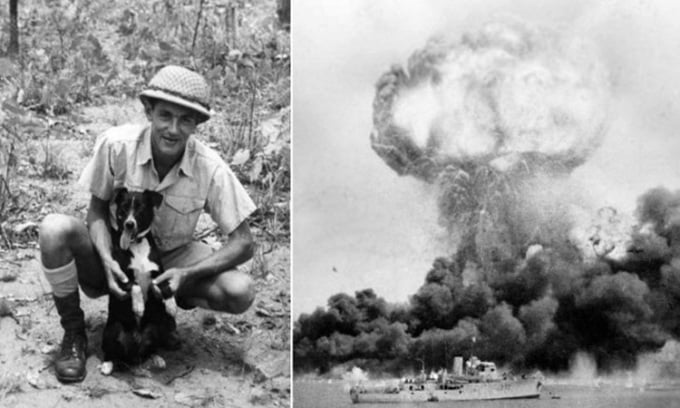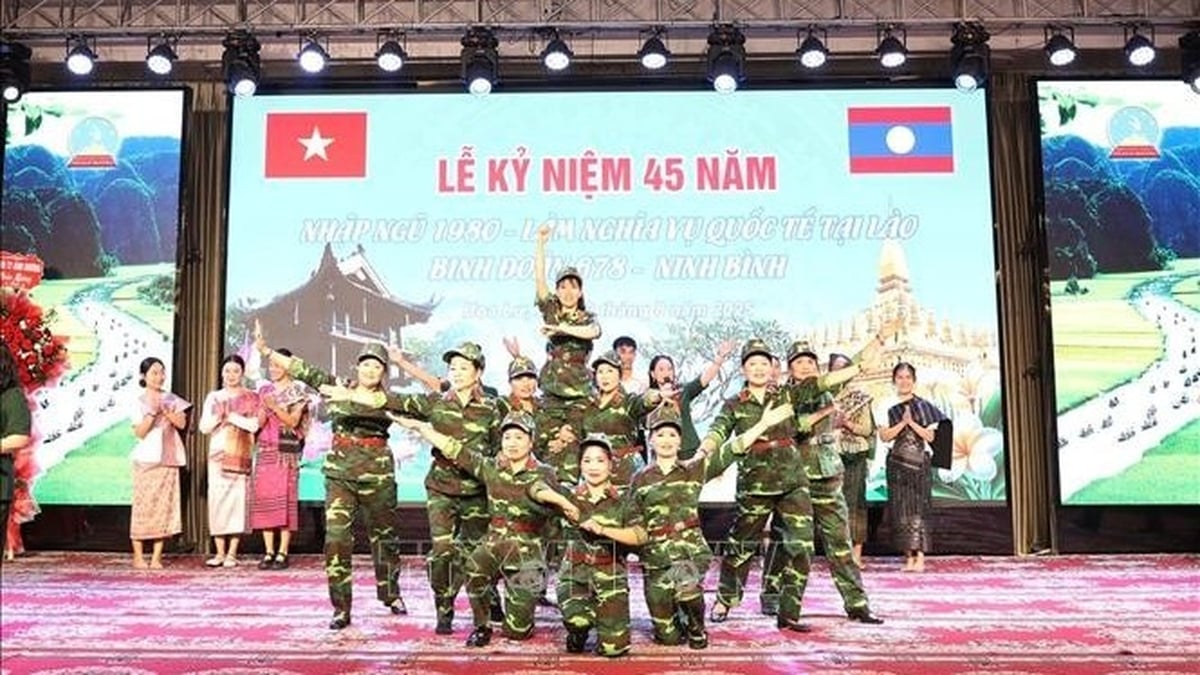With his keen hearing, a dog named Gunner detected Japanese planes from a distance of more than 160 km, helping the Australian Air Force protect the city of Darwin.

Percy Westcott and Gunner on the left. Photo: Amusing Planet
Throughout history, dogs have consistently held a unique position in warfare, serving in a variety of roles such as tracking enemy troops, detecting weapons and explosives, patrolling or delivering mail, and even detecting distant bombing attacks thanks to their keen hearing, as in the case of Gunner, according to Amusing Planet .
On February 19, 1942, the city of Darwin in the Northern Territory of Australia was the target of a Japanese air raid. Japanese pilots targeted ships in Darbin Harbor and the Royal Australian Air Force airfield in an attempt to deny Allied forces access to the base and impede their invasion of Timor and Java during World War II. All that remained of the destruction were the wreckage of a light bomber and a frightened black-and-white kelpie with a broken leg.
Airman Percy Westcott found the dog under a ruined hut at the air base. Westcott rescued the dog and took it to the field hospital. There, the medical staff insisted they could not treat a patient without a name and number. Westcott and his friends quickly registered the dog and named him Gunner. That way, the doctor could examine him and put a cast on his leg. Within days, Gunner was happily hobbling around the camp.
Gunner quickly developed a keen sense of hearing. He could hear the sound of a chef’s knife hitting steel as he prepared to cut meat. He could hear planes approaching from over 100 miles away. The Japanese continued to return to Darwin regularly. Before each air raid, Westcott and his friends noticed that Gunner became agitated, started moaning and jumping around. In those days, radar technology was primitive. Gunner’s alarms often preceded the official siren by up to 20 minutes, enough time for fighter planes to be deployed.
Gunner's hearing was so precise that he could distinguish between the engine noises of Allied and Japanese aircraft, and only became agitated when enemy aircraft were approaching. Gunner was so reliable that the army commander gave Westcott a portable air raid whistle to relay Gunner's warnings to the base. Only twice did Gunner miss the warning because the enemy quickly returned from the previous attack.
Gunner became an indispensable member of the air force. He slept under Westcott's bunk, bathed with the soldiers, sat with them at the open-air cinema and accompanied the pilots on take-off and landing training. Fifteen months later, Westcott was transferred south while Gunner remained in Darwin. No one knows what happened to him after that. "I never found out what happened to him in the end," Westcott said. "I thought I would come back after the war or meet someone I knew, but I didn't."
An Khang (According to Amusing Planet )
Source link



































































































Comment (0)